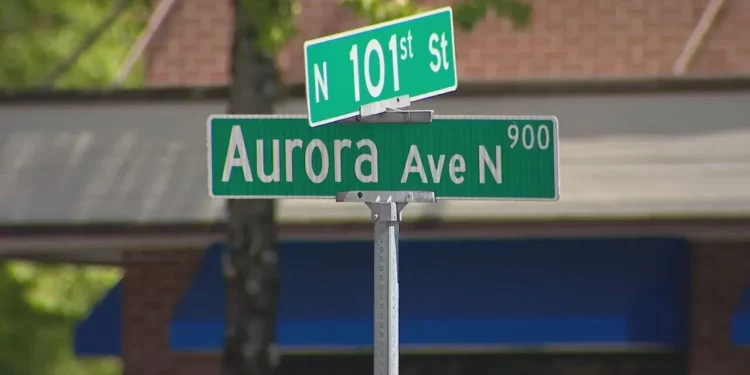Travis Daniels faced an impossible choice this autumn: continue working or ensure his children could safely reach Robert Eagle Staff Middle School. He chose his children, leaving his job to personally escort them past Aurora Avenue’s ongoing struggles with prostitution and violence.
“What this is about is children getting to school safely and getting home safely, that’s all it is,” Daniels said. His family lives within the two-mile radius that disqualifies them from school bus service, leaving walking as the primary option for reaching the North Seattle campus.
The decision came after his daughter expressed serious concerns about crossing Aurora Avenue, where evidence of human trafficking and other criminal activity remains visible despite recent city intervention efforts. “You go anywhere on Aurora Avenue, you’re gonna see it, it’s in your face,” Daniels explained. “But to know that my daughter knows about human trafficking, school shootings, it just breaks my heart.”
Daniels’ situation illustrates the practical impact of Seattle’s long-standing Aurora Avenue problems on everyday families. The corridor has struggled with prostitution, drug activity, and associated violence for years, creating safety concerns that extend beyond those directly involved in illegal activities.
The Seattle City Council passed an ordinance last year targeting loitering related to prostitution and drugs. Since implementation, the city attorney’s office has filed 31 criminal cases for patronizing, loitering, and promoting loitering for prostitution purposes. Additionally, 23 active court orders prohibit individuals arrested on these charges from entering the Aurora Avenue area.
However, the effectiveness of these measures remains disputed among those working directly with affected populations. Kristine Moreland, co-founder of The More We Love, an outreach organisation serving human trafficking victims in the area, said enforcement has not visibly reduced the underlying issues.
“I would not say that we’ve seen any improvements in terms of the human suffering that is actually going on,” Moreland noted. “What I will say is that our phone has been ringing, really, with all honesty, 24 hours a day, but we have seen an influx of officer calls coming through and actually bringing us the women who are in need of our services.”
The More We Love opened a 24-hour crisis centre focused on Aurora Avenue in June. The facility allows people to stay up to 30 days whilst connecting them with employment support and housing services. “Since opening the crisis centre, our beds have been full, and that’s a really good sign,” Moreland said. “We’ve seen people moving through the system pretty quickly, getting connected to job support and housing.”
The organisation’s current contract with the city runs through December, though Moreland hopes to extend services into next year. The crisis line operates 24 hours at (425) 523-1941 for anyone needing assistance, including law enforcement and private businesses.
For families like the Daniels, these services address important humanitarian concerns but do not solve the immediate safety question of children walking to school. The family’s experience highlights how Aurora Avenue’s problems create ripple effects throughout surrounding neighbourhoods, forcing difficult choices between economic stability and child safety.







